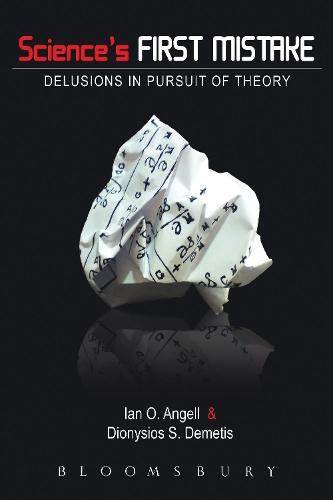Overview
This book is available as open access through the Bloomsbury Open Access programme and is available on www.bloomsburycollections.com. Taking examples from across the natural and social sciences, this ambitious book examines the deep-seated assumptions that underpin the discovery of knowledge, and claims that all scientific methods are delusions in pursuit of theory. Using Systems Theory, in particular the concept of self-reference, the book argues that the process of observing tricks the human mind into developing a self-consistent description of itself; and a belief in the certainty of a causal 'reality'. Our theories and ways of thinking about the world around us are, in fact, distinct from the 'reality' being observed. This fresh, audacious work makes an important contribution to the study of scientific method, and takes readers out of the comfort zone of their perceived scientific certainty.
Full Product Details
Author: Professor Ian O. Angell ,
Dionysios Demetis
Publisher: Bloomsbury Publishing PLC
Imprint: Bloomsbury Academic
Dimensions:
Width: 15.60cm
, Height: 1.40cm
, Length: 23.40cm
Weight: 0.363kg
ISBN: 9781780932330
ISBN 10: 1780932332
Pages: 256
Publication Date: 13 September 2012
Audience:
College/higher education
,
Professional and scholarly
,
Postgraduate, Research & Scholarly
,
Professional & Vocational
Format: Paperback
Publisher's Status: Active
Availability: Manufactured on demand

We will order this item for you from a manufactured on demand supplier.
Reviews
Overall, I think this is potentially a very interesting and important book, and the authors are probably two of the very few who would attempt this and that might just succeed. It is clearly somewhat of a risky book for a publisher but as in all such risks the rewards are potentially high. Professor Guy Fitzgerald, Department of Information Systems and Computing, Brunel University Excellent and ground breaking. Very well written. Engaging in reading. It is a much needed and original contribution, which will become a key reference in contemporary academic social sciences thinking. Professor Fernando Ilharco, Universidade Catolica Portuguesa, Lisbon The questions posed by the authors in their book are important. They are also a good reminder to constantly consider the dialectic between knowledge, authority, and its relationship with certainty. New York Journal of Books
A very interesting and important book. Professor Guy Fitzgerald, Brunel University, UK Excellent and ground breaking. Very well written. Engaging. It is a much needed and original contribution, which will become a key reference in contemporary academic social sciences thinking. Professor Fernando Ilharco, Universidade Catolica Portuguesa, Lisbon The questions posed by the authors in their book are important. They are also a good reminder to constantly consider the dialectic between knowledge, authority, and its relationship with certainty. New York Journal of Books
A very interesting and important book. * Professor Guy Fitzgerald, Brunel University, UK * Excellent and ground breaking. Very well written. Engaging. It is a much needed and original contribution, which will become a key reference in contemporary academic social sciences thinking. * Professor Fernando Ilharco, Universidade Catolica Portuguesa, Lisbon * The questions posed by the authors in their book are important. They are also a good reminder to constantly consider the dialectic between knowledge, authority, and its relationship with certainty. * New York Journal of Books *
Author Information
Ian O. Angell is Professor Emeritus at the London School of Economics. His many publications include The New Barbarian Manifesto: How to survive the information age. Dionysios S. Demetis is a Member of the Scientific Board of the Geolab Institute at the Ionian University, Greece.




